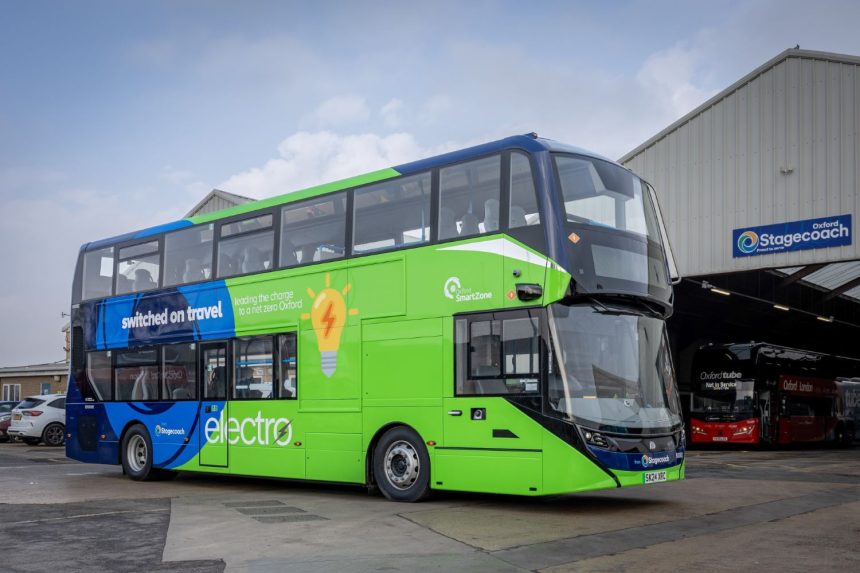Alexander Dennis (ADL) has confirmed an order of 244 buses from Stagecoach, which the manufacturer says is the biggest it has received yet for zero-emission vehicles.
The order, supported by the second-round of the government’s Zero Emission Bus Regional Areas scheme (ZEBRA2), covers three models of ADL’s next-generation integral battery-electrics.
It includes 54 Enviro200EV in lengths of 10.9m and 11.7m – representing the first order for the single-decker due to be launched next year.
Also in the batch are 180 Enviro400EV double-deckers and 10 8.5-long Enviro100EV single-deckers.
All vehicles will be delivered in 2025 and 2026, says ADL.
Following launch last autumn of the Enviro400EV and 100EV, Stagecoach in Oxfordshire in March became the first operator to take delivery of the new version of the double-decker.
The order forms the bulk of the 367 units for which which Stagecoach gained ZEBRA2 part-funding, which came courtesy of 11 successful bids in collaboration with local authorities.
Paul Davies, Alexander Dennis President and Managing Director, says: “This landmark deal with Stagecoach confirms the benefits of our next-generation electric buses, which have been carefully designed to deliver a highly attractive total cost of ownership proposition.
“We are particularly delighted that Stagecoach will benefit from our platform approach to vehicle development, which maximises the number of common parts and solutions across all three vehicle types to make them easy to drive and maintain.
“Our Enviro100EV ‘big small bus’, the new Enviro200EV all-rounder and the crowd-shifting Enviro400EV double decker will be driving value together through efficiency, longevity and flexibility.”
Claire Miles, Chief Executive Officer for Stagecoach, adds: “We’re excited to place the largest electric vehicle order to date for Alexander Dennis with these 244 new vehicles, which reflect Stagecoach’s commitment to transition to a zero-emission bus fleet.
“We will continue to build on our work to tackle climate change and connect communities across the UK sustainably and efficiently.”



























